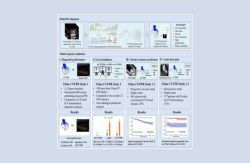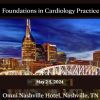Heart disease is an equal opportunity killer that claims nearly 1 million lives annually and is the leading case of death in the U.S. Texas A&M Health Science Center cardiologist, John P. Erwin, MD, highlights six surprising clues that can point to an unhealthy heart.
1. Sexual problems
Erectile dysfunction is a common manifestation of heart disease. It is believed that the buildup of plaque in the arteries is the the reason erectile dysfunction precedes heart disease in men. Similarly, in women, a drop in libido indicates a post-menopausal state and women who are post-menopausal rapidly are at a greater risk of developing heart disease. This is not to say that menopause causes cardiovascular disease but changes in blood pressure and cholesterol levels often begin around the time of menopause which could increase the risk. In addition, many women develop a sedentary lifestyle in this phase of their lives and are thus more prone to develop cardiovascular issues.
2. Snoring/Sleep Apnoea
Sleep apnoea is associated with physiological changes that could increase the risk of both heart attack and stroke. It may also be an indicator of atrial fibrillation. Early detection and treatment of sleep apnoea could lower risk of heart disease.
3. Sore, swollen or bleeding gums
Periodontitis is another condition that can lead to an increased inflammatory state and become a strong risk factor for the development of atherosclerotic heart disease and heart attack. Practicing good oral hygiene and regular visits to the dentist can reduce the risk of periodontal disease.
See Also: Periodontitis Treatment Prevents Heart Disease
4. Puffy legs and feet
Swollen legs and feet can also be an indicator of congestive heart failure, especially if it is accompanied with shortness of breath with activity or when trying to sleep. This does not refer to natural swelling that resolves overnight but persistent or worsening swelling that should be discussed with a physician.
5. Aching or constriction in the shoulders or neck
The general perception is that people would have the classical feeling of an elephant sitting on their chest or a squeezing sensation in their arms when they have a heart attack. But in many cases, people have an uncomfortable sensation, achiness, pain, or pressure in their neck, jaw, and/or shoulders as the only sign of heart pain or a heart attack.
6. Heartburn or indigestion
Another sign of heart pain or heart attack is a burning or aching sensation in the upper abdomen, or persistent gastrointestinal distress like intractable hiccups. If this is accompanied with nausea, sweating, shortness of breath, or lightheadedness, there is more cause for concern.
Source: Texas A&M
Image Credit: Pixabay























